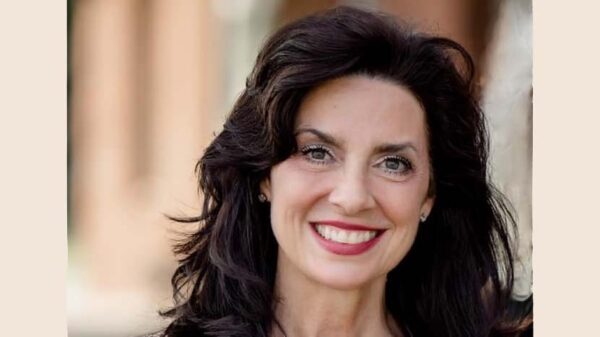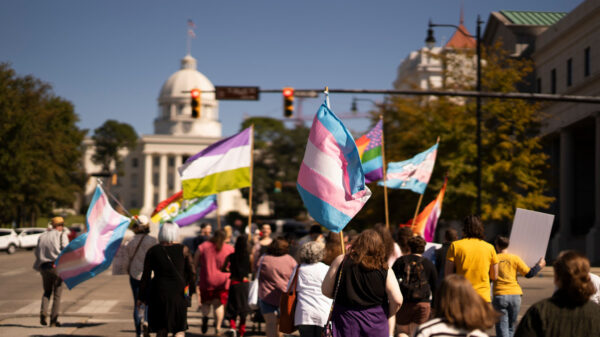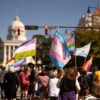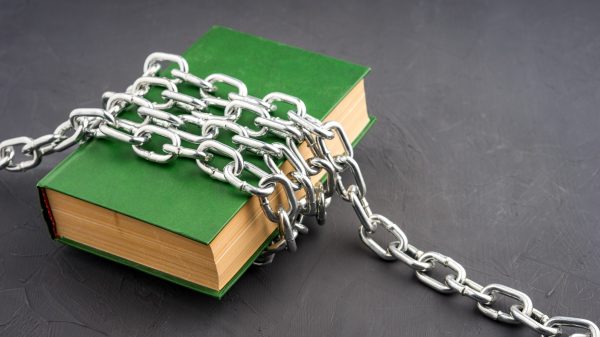Here in Alabama, as in other red states, there is a small band of religiously motivated zealots who want to impose their version of morality and decency on the entire population. Their latest effort to reshape society is to force the relocation of certain books from the young adult section to the adult section in public libraries.
They mask this act under the guise of protecting youth from “pornographic” or “inappropriate” content, but let’s call it what it is: a ban. This tactic is as transparent as it is dishonest, reflecting a worrying trend toward controlling what young people are exposed to in terms of knowledge and perspectives.
The current debate surrounding book bans starkly contrasts with the more pressing issues affecting the state’s youth. The statistics are telling: Alabama’s teen birth rate, as reported by the CDC, stands at 22.9 births per 1,000 females aged 15 to 19 years, which is significantly higher than liberal California’s rate of 9.9 births per 1,000 in the same age group. This places Alabama with the fifth-highest teen pregnancy rate in the nation, according to the World Population Review.
Furthermore, the situation regarding child poverty and food insecurity in Alabama is alarming. Data from the USDA shows that 22.7 percent of children under 17 live in poverty, and 22.3 percent, or 243,880 children, face food insecurity. These figures paint a picture of a state grappling with profound challenges impacting its younger population. But the most pressing issue among these would-be censors is books in a public library.
The targets of this crusade are books discussing Black history, racism in America, and the experiences of transgender youth and the LGBTQ community. Such selective censorship echoes the age-old, yet always defeated, attempts to suppress knowledge and control thought.
Efforts to ban or censor books have always been on the wrong side of history and, are ultimately rejected by societies that value freedom and diversity of thought. History is replete with instances of censorship that are now seen as ignorant and cruel. Consider the Roman Catholic Church’s Index Librorum Prohibitorum, a notorious list of prohibited books.
This censorship, once considered a bulwark of societal values, is now regarded as a dark chapter in the history of intellectual freedom. Similarly, the burning of William Tyndale’s translation of the New Testament into English, an act that led to his execution, reflects a time when censors were viewed as defenders of societal norms, yet today, they are seen as villains.
Another example is the Roman Emperor Caligula, who in 35 A.D. opposed Homer’s “The Odyssey” for its ideas of freedom. His actions, once perhaps seen as maintaining the status quo, are now looked upon as suppressive and regressive.
The most extreme case might be that of the Chinese Emperor Shih Huang Ti. In 212 B.C., in an attempt to redefine history and consolidate his power, he reportedly buried 460 scholars alive and burned countless books. This draconian act, intended to mark the beginning of history with his reign, is now condemned as a heinous crime against humanity.
These historical episodes illustrate a pattern: actions once seen as upholding societal norms or protecting the status quo are often later condemned as acts of savagery and hate. They remind us of the ever-evolving nature of social values and the importance of preserving freedom of thought.
The current situation in Alabama echoes these historical precedents, revealing a fundamental conflict between freedom of expression and attempts to indoctrinate young minds with a particular religious agenda. Removing books from the young adult section of a public library undermines principles of intellectual freedom, educational value, and the developmental benefits for young readers.
Public libraries are a crucial part of every local infrastructure, providing communities with access to diverse viewpoints and ideas. Young Adult (YA) literature, in particular, plays a vital role in addressing social issues and offering insights into experiences different from one’s own. This exposure is critical for developing empathy, understanding, and a broader worldview. During adolescence, a period of significant personal and intellectual development, YA books can help young adults navigate complex realities, offering a safe place for exploration and understanding.
Moreover, engaging with challenging or controversial content is essential for fostering critical thinking skills. YA books can stimulate discussion, reflection, and a deeper understanding of complex issues, contributing to the development of informed and literate individuals.
While it is valid for conservatives to champion parental rights and individual choice in guiding their children’s reading, it is not appropriate to impose these preferences on the broader community. Public libraries serve diverse populations with varying values and interests. What one family finds objectionable may be invaluable to another. In a free society, the answer lies in personal choice, not in government-imposed restrictions.
This movement is not about protecting the young but controlling them, shaping their views to fit a narrow narrative. It goes against the very essence of what public libraries represent: freedom of thought, exposure to a multitude of ideas, and the fostering of informed, empathetic citizens. As history has repeatedly shown, efforts to censor and control thought are not only doomed to fail but also counterproductive to the growth of a free and open society.
Gov. Kay Ivey’s call for “Alabama solutions to Alabama problems” rings true, but the focus seems misdirected when it comes to banning library books. While efforts intensify to ban and censor books, real and tangible issues like teen pregnancy, child poverty, and food insecurity receive less attention. This discrepancy suggests that the motivation behind the book bans may be less about protecting Alabama’s youth and more about advancing a specific religious ideology.
In the heart of Alabama, a debate rages—not about the pressing issues that grip the state, but about the content of library shelves. This is nothing more than a small band of social crusaders hoping to offer no solutions to a dire problem while inventing a dire solution where no problem exists.
The people of the state and its lawmakers must not be fooled by these charlatans but concentrate on the real challenges facing the state’s youth.
The situation calls for a reevaluation of priorities. Addressing the root causes of teen pregnancy, poverty, and food insecurity should take precedence over censoring library content. The state’s children and youth face real problems that need real solutions, not just symbolic gestures that align with certain ideological viewpoints. Redirecting the focus toward these fundamental issues would better serve the needs of Alabama’s younger generation.



















































